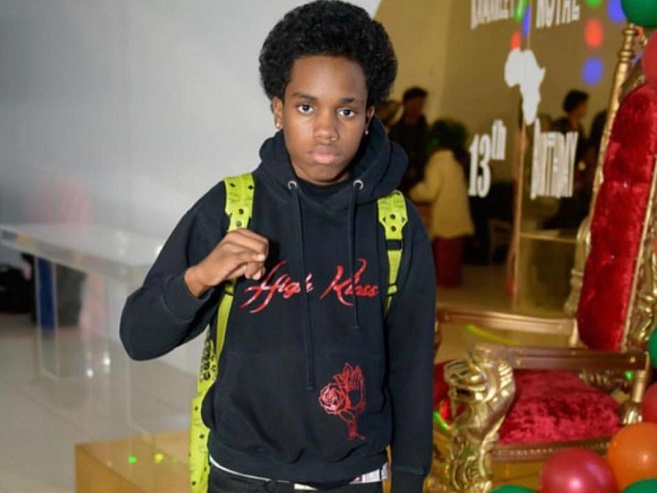The family of Nicholas Simon, 17, is accusing police of falsely arresting and “kidnapping” the teenager in early June. The Brooklyn, New York, high school student says he was walking home from the park when police in the Crown Heights neighborhood stopped him.
Surveillance footage obtained by local station News 12 Brooklyn, shows the teenager dribbling a basketball before police approached and arrested him. The teen was put in the back of a squad car where he said officers asked him “Where is the gun?” Nicholas says he had no weapon and that officers did not explain why he was arrested. Nicholas was brought to a local police precinct and charged with disorderly conduct, according to News 12 Brooklyn.
The teenager’s attorney, Keith White, is calling for police to drop the charges against Nicholas. The family also plans to file a lawsuit against the NYPD for the way Nicholas was treated.
“It has to be framed as a kidnapping and an unlawful arrest because if not, we normalize the police’s ability to lock us up until they find a crime for us,” White told AURN. “If we call it what it is which is a kidnapping and wrongful arrest, then can we properly identify and begin to solve the problem,” he continued.
The NYPD has not responded to a request for comment.
View this post on InstagramA post shared by Dr. keith white, Esq. (@keithwhite) on
Nicholas’ case is the latest example of the NYPD’s long history of excessive policing of Black youth in New York City. The police’s stop-and-frisk activity disproportionately targets black and brown youth, ages 14 to 24, according to a 2019 data analysis by the New York Civil Liberties Union called “Stop and Frisk in the DeBlasio Era.” The age group is five percent of the city’s population but made up 38 percent of all stops between 2014 and 2017, the report states.
“The decline in the sheer number of stops is important progress, but it does not change the fact that black and Latino New Yorkers are still disproportionately targeted by stop-and-frisk policing,” said Donna Lieberman, Executive Director of the New York Civil Liberties Union, in a news release.
The Central Park Five, possibly the most famous example of the NYPD’s excessive policing of black youth, has recently received renewed attention because of Ava Duvernay-directed Netflix film When They See Us based on the case. The film outlines how the police department and New York County District Attorney’s Office framed then teens Yusef Salaam, Antron Mccray, Kevin Richardson, Raymond Santana Jr., and Korey Wise as criminals, ultimately leading to their imprisonment. The men were exonerated in 2002 after a serial rapist confessed to the crime for which the Central Park Five was convicted.
“I don’t want to conflate and I don’t want to minimize what they [Central Park Five] went through because what Nicholas went through is not what they went through, but the process started the same,” said White. “There are layers to how problematic this case is and starts with why he was even approached in the first place without him being questioned.”
Going forward, Nicholas’ family and attorney are concerned with the emotional trauma he will face after the incident. They want to see the NYPD takes more steps to create policies that stop these incidents from occurring again in the future.
“We also need to have some conversations around what community policing should look like,” said White. “Should it look like a bunch of big white guys coming in and jumping on top of a black boy? That does not look like community policing in my mind.”





